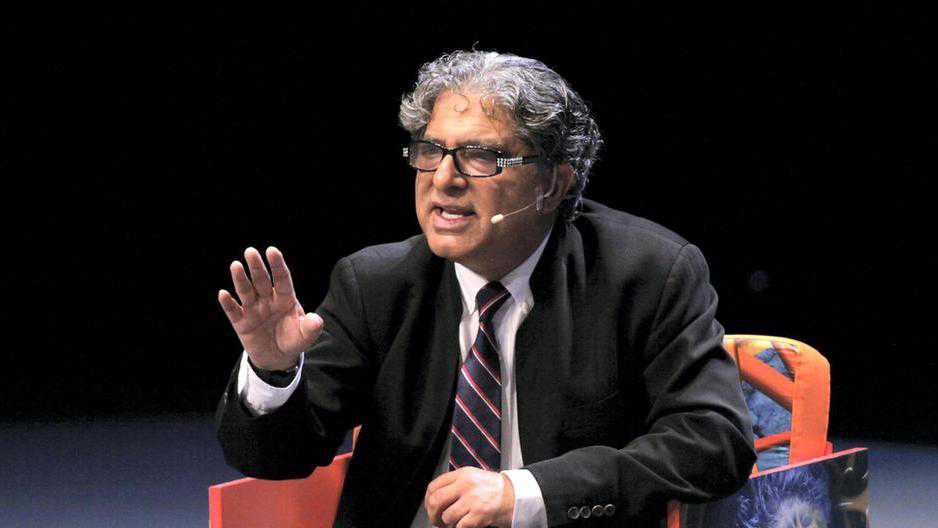Wellness guru Deepak Chopra predicts the continuing future of travel after Covid
24 April, 2021

The $4.75 trillion wellness industry is all over, Deepak Chopra would argue.
It’s in the air you breathe, the trees in your backyard, the spa with a garden, even right in your pocket. And if you don’t see it those places at this time, you will soon.
That’s since the wellness guru - spiritual adviser to Oprah Winfrey, founder of the humanitarian- and wellness-oriented Chopra Foundation, integrative medicine physician and writer of 90-plus books - sees wellness as an interconnected web of digital tools, individual soul-searching and interpersonal experiences.
His work has him engaging in all those fronts. During the pandemic he has organised twice-monthly group retreats, where participants convene in the town of Carefree in Arizona for six days to rid their bodies of toxins and learn to tap into primordial sound meditation.
In January he released Digital Deepak, which uses artificial intelligence to provide spiritual guidance that feels as though it’s coming straight from the master himself. For $70 a year, his Chopra app is putting meditation and self-care onto small screens everywhere. It arrived in August on the Apple Store with Android still to come.
All this made Mr Chopra the leading authority on what wellness travel appears like amid the pandemic - whenever we all require it but might not exactly be traveling much - and how it really is poised to evolve in the near future.
This is of wellness travel is changing.
Some travellers will flock to the most common spots to reduce the weight they have gained through the pandemic, but Mr Chopra believed that more will look for experiences that relate to spirituality instead.
“Of course persons want to reinvent their bodies and resurrect their souls,” Mr Chopra said. “But they are buying a reconnection to existence.”
“Later on we’ll see travel combine wellness with exploring nature in all its amazing diversity … birdwatching, walking through rainforests, connecting with the life span in the savannah, spiritual sites like Bali,” he said. “You’re likely to see an influx of wellness travel for several reason.”
All this relates to the holistic mental health and building mental resiliency, Mr Chopra said. In the last year, he said, the persons who’ve found acceptance and opportunity, instead of feelings of grief and loss, were divided by their “awareness and interest in fundamental reality or spirituality".
Experiences that connect us to nature, that assert our place in the world and link us to others, he added, are what make us mentally fit, helping us become accepting of challenges and able to grow inside our personal and professional lives.
“When people are in touch with each other,” Mr Chopra said, “it influences and strengthens our limbic, or emotional, brain.” Types of that include “real physical contact like this of a mother and baby, hugs, embraces and even direct eye contact”.
Exercising your limbic system - a set of brain structures which includes your hypothalamus, frontal lobe and hippocampus, all in charge of regulating memory, emotion, and behaviour - includes many benefits.
“Whenever your limbic system feels disconnected from others you feel depressed,” he said. “And in the event that you feel linked with societies and communities, there is a thing that happens called limbic resonance, which decreases inflammation and anxiety.”
None of the, he explained, can be accomplished over Zoom. “It’s like trying to eat a meal by consuming the menu,” he said. “The menu offers you a concept what it tastes like, nevertheless, you must be given you see, the meal.”
Each trip you take doesn’t ought to be built around spa services and meditation classes, but Mr Chopra encouraged travellers to prioritise places that reduce their existing anxieties rather than add to them.
“Every vacation needs to be a restoration of the spirit.”
Which means a repudiation of overly commercial destinations, which lead people to “end up a lot more burnt out”.
Source: www.thenationalnews.com
TAG(s):
